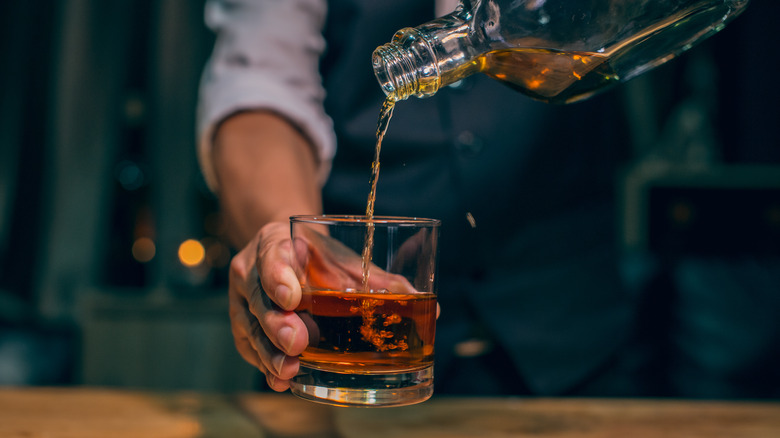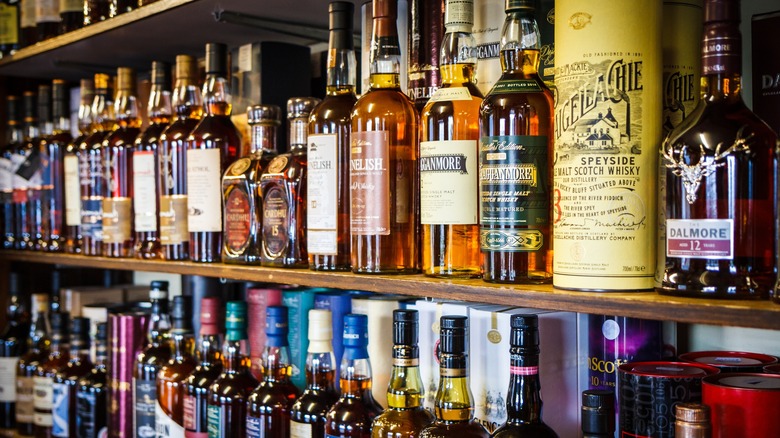Scientists Developed An 'Electronic Nose' To Identify Whiskey. Here's Why
The whiskey industry is highly-lucrative, with a global market worth $58 billion as of 2018, reported IEEE Spectrum. And because it's such a hot commodity, the whiskey business attracts its fair share of fakes and counterfeits. However, as noted by a recent study published by IEEE Sensors Journal, the average consumer can't usually tell if and when their beverage is fraudulent — so researchers, including several from the University of Technology Sydney (UTS), got to work developing a fast, reliable way to test whiskeys for authenticity.
Enter: the electronic nose, or e-nose. According to IEEE Spectrum, UTS researchers took a prior e-nose design (which was developed to identify animal parts illegally exchanged on the black market) and adapted it to identify whiskeys. Their new prototype, called NOS.E, showed remarkable results during testing: Per Science Daily, NOS.E was 100% accurate at determining what region a given whiskey was from, 96.15% accurate at identifying whiskey by brand, and 92.31% accurate at differentiating between styles.
How does the e-nose work?
According to IEEE Spectrum, a whiskey sample is first added to NOS.E via a small vial. Then, the scent of the whiskey is pushed into a chamber outfitted with gas sensors that identify the scent's different components. Data collected by these sensors is then analyzed by machine learning algorithms, which use the sample's scent features to determine its region, brand, and style.
Taking design inspiration from the human nose, the NOS.E prototype was able to identify six different whiskeys in under four minutes, reported Science Daily. Moreover, use for the technology has potential to expand beyond just whiskey – the publication noted that e-noses could be used to authenticate other varieties of specialty alcohol or commodities such as perfume.
"Up until now, detecting the differences between whiskies has required either a trained whisky connoisseur, who might still get it wrong, or complex and time-consuming chemical analysis by scientists in a lab," said the study's lead author and associate professor at UTS, Steven Su, per Food & Wine. "So to have a rapid, easy to use, real-time assessment of whisky to identify the quality, and uncover any adulteration or fraud, could be very beneficial for both high-end wholesalers and purchasers."

